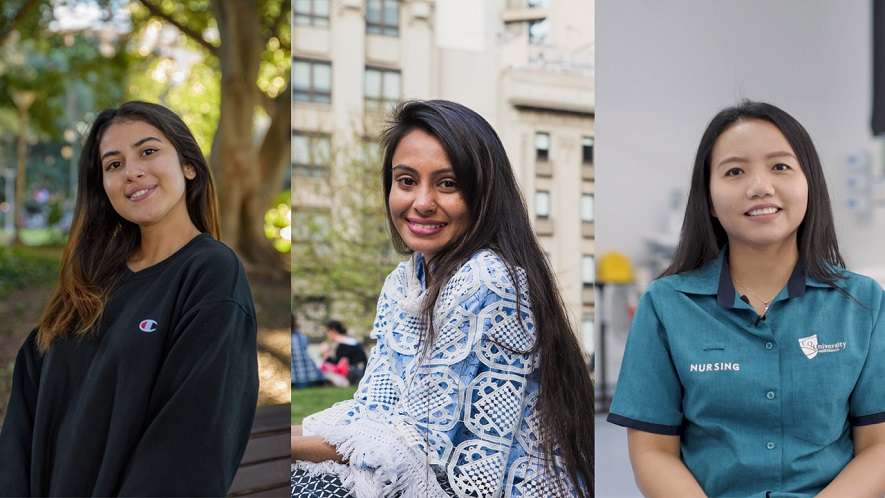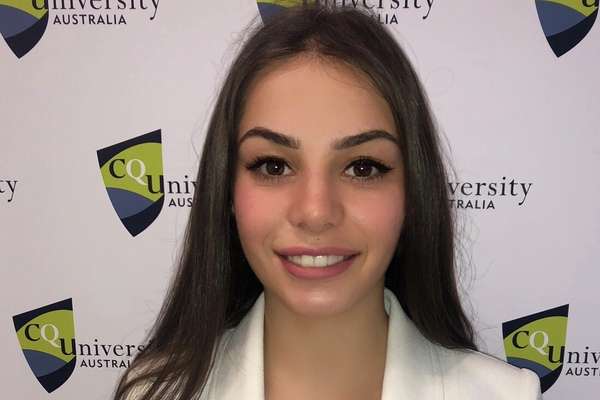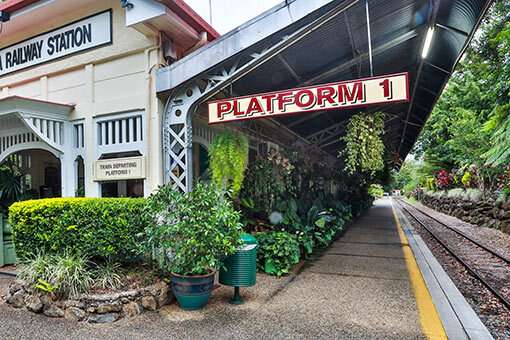Life in Australia

Transcript
Before coming to Australia I was quite concerned with racism, but after arriving here I realised that this country is so perse and it is home for everyone, no matter your skin colour or religion.
When I first came here, I was surprised at how friendly Aussies were. I used to do a little bit of walk every early morning, and people would be smiling, waving, or even stopping to have a chat.
Melbourne is a great place to live. There are multiple public transport options, relatively low crime rates and plenty of jobs.
Gradually I have understood the culture, found people to be welcoming and friendly, and I feel more stable.
Australia is a diverse and multicultural country. Australia’s original inhabitants, the Aboriginal and Torres Strait Islander people, have been living in Australia for at least 40,000 years. The rest of Australia’s people are migrants or descendants of migrants who have arrived since the first European settlement was established at Sydney Cove in 1788.
The unique mix of cultures, food, languages and religious backgrounds, directly influence Australia’s culture and values. The landscape, cultural diversity and city life will vary depending on where your campus is located. This section will provide you with important information that will help you adjust to living and studying in Australia.
If you have any questions, please contact the Student Service SPOT or visit Student Services on your campus.
The cost of living in Australia varies depending on your location, accommodation type and lifestyle. It is generally more affordable to live in shared accommodation. Inner-city living is much more expensive compared to outer suburbs and regional areas. Below is a simple guide on living costs in each state to help you prepare a budget.
Please note, this is a guide only and the figures stated are subject to change.
Suggested weekly budget (A$)
Rent
Weekly rent can vary depending on the state you are in and the type of accommodation. Please use the costs stated here as an approximate guide only.
| Type of accommodation | Weekly (A$) |
|---|---|
| Hostels and Guesthouses | 150 to 300 |
| Shared rentals | 150 to 350 |
| On-Campus and Student Apartments | 340 to 670 |
| Homestay | 200 to 470 |
| Private rentals | 300 to 700 |
Living expenses including utilities
| Expenses | Weekly (A$) |
|---|---|
| Groceries and eating out | 100 to 300 |
| Gas, electricity and water | 50 to 80 |
| Phone and internet | 15 to 55 |
| Public transport | 15 to 55 |
| Car | 150 to 260 |
| Entertainment | 80 to 150 |
Utilities such as gas, electricity, water and internet are often included in CQUniversity's Student Residence.
These are basic living costs and do not include tuition fees, study-related costs such as textbooks and stationery, Overseas Student Health Cover (OSHC) fees or any luxuries.
The Department of Home Affairs has financial requirements you must meet in order to receive a student visa for Australia.
- Primary applicant – A$29,710
- Partner/spouse of primary applicant – A$10,394
- Dependent child – A$4,449
For currency conversion, please visit xe.com
For more information on the cost of living in Australia and for tips on creating a budget, please visit the following helpful websites:
The Insider Guides provides a helpful online Cost of Living Calculator to estimate your weekly, monthly and yearly living expenses.
The Australian Government website, Money Smart provides a lot of helpful information on managing finances in Australia.
The Study in Australia website has some excellent resources and is available in multiple languages.
The climate in Australia varies widely. The northern part of Australia tends to have quite a tropical climate with hot and humid summers and warm and dry in the winter. The Southern part tends to have mild summers and cold and rainy winters. Snow is rare but does fall in some regions.
The average temperatures in degrees Celsius (oC), in the cities where our campuses are located.
Summer (Dec – Feb) | Autumn (Mar – May) | Winter (Jun – Aug) | Spring (Sep – Nov) | |
|---|---|---|---|---|
| Adelaide, SA | 15 – 26 | 12 – 22 | 7 – 16 | 11 – 21 |
| Brisbane, QLD | 21 – 30 | 17 – 27 | 18 – 22 | 16 – 27 |
| Bundaberg, QLD | 24 – 30 | 17 – 27 | 11 – 22 | 16 – 27 |
| Cairns, QLD | 24 – 31 | 22 – 29 | 17 – 26 | 21 – 29 |
| Gladstone, QLD | 23 – 30 | 19 – 28 | 13 – 19 | 18 – 28 |
| Mackay, QLD | 23 – 30 | 19 – 27 | 12 – 23 | 18 – 28 |
| Melbourne, VIC | 13 – 26 | 10 – 20 | 6 – 14 | 9 – 19 |
| Rockhampton, QLD | 22 – 32 | 18 – 28 | 10 – 24 | 17 – 29 |
| Sydney, NSW | 19 – 26 | 14 – 23 | 8 – 18 | 13 – 22 |
| Townsville, QLD | 24 – 31 | 20 – 29 | 14 – 26 | 20 – 29 |
Source: Australian Bureau of Meteorology.
Australians love the great outdoors. There are parks everywhere and most of them will have free barbecues. Major beaches will have lifeguards and surf rescue teams and you can find small and well-kept camping grounds hundreds of kilometres from anywhere. The cities are easy to get out of so you can move from urban to 'bush' in under an hour and a couple of hours later you'll be in the 'outback'.
There is no shortage of culture with fantastic museums and galleries, a thriving theatre and music scene and fantastic restaurants and coffee.
Sporting events bring the nation together whether it is AFL Grand Final Day, the Australian Open tennis, the State of Origin rugby or the Bells Beach Surfing competition, to name a few.
Safety and adventure
Australia is a safe place to study and live and is ranked among the safest countries in the world. But like any country you need to be aware of your surroundings and take precautions.
Travelling in groups and avoiding public transport late at night are common sense approaches to living anywhere. We have a visible and very approachable police force ensuring that the streets are kept safe.
We also have an abundance of wildlife off our coasts and in the bush that can sting or bite so it is worth familiarising yourself with the hazards in the environment you will be in.
Australia is a land for the adventurer so if you are going to go scuba diving, trekking in the outback, climbing mountains, camping in the bush or clubbing till dawn you need to take necessary precautions. We'd recommend talking to locals to find out about local conditions. If you respect your surroundings Australia will repay you with life-long memories.
You can find more information on our Health and Safety page.
Wildlife and landscape
You will leave Australia missing the smell of eucalyptus trees, the screech of a cockatoo or the serene image of a kangaroo hopping along the beach. Besides the kangaroos, koalas and crocodiles, there are huge numbers of more unusual animals like echidnas, platypus, cassowaries and bilbies.
We strongly recommend you get a travel guide like the Lonely Planet or a copy of Australian Geographic which will give you an insight into the abundance of wildlife and a variety of landscapes you can experience while here.
Australia is also home to 20 UNESCO World Heritage sites, from the Great Barrier Reef in Queensland to the Blue Mountains in New South Wales to the various Australian Convict Sites located throughout Australia, to name a few.
Unlike any other university in Australia, CQUniversity has campuses across the country, each giving students a uniquely Australian experience. You can choose to study at more than one campus and mix the urban with the regional, hot with cool, tropical with temperate or whatever suits your academic and personal interests.
You can find more information on Your Campus page.
 “
“I've always wanted to be an accountant because I really enjoyed maths and was interested in economics. Applying to study at CQU was quick and smooth, and I also received credits from my previous studies!
Sara Manka
Bachelor of Accounting | Albania

